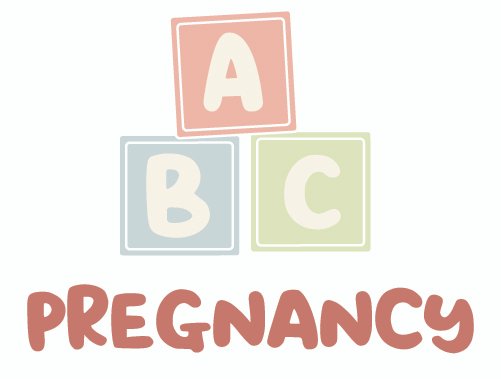The Importance of Vitamins for a Healthy Pregnancy
The Critical Role of Vitamins for Pregnant Women
In theory, we all want to live the healthiest of lifestyles. In reality, that seldom happens. We might eat junk food, and may spend too much time in front of the TV, for example. During pregnancy, though, it’s a good time to reconsider some of your options for a healthier lifestyle. One thing you may want to consider for a healthy baby and pregnancy, is managment of your vitamin intake. Let’s talk about some of the more important vitamins for pregnancy and how they are key to you and your baby’s health.
Key Vitamins For Pregancy
- Folic Acid (Folate): Folic acid is perhaps one of the most well-known vitamins recommended during pregnancy, primarily due to its role in preventing neural tube defects such as spina bifida. It is essential for proper brain and spinal cord development in the early stages of pregnancy. Pregnant women are advised to take a prenatal vitamin containing at least 400 to 800 micrograms of folic acid daily, ideally starting before conception and continuing throughout the first trimester.
- Iron: Iron plays a critical role in the production of red blood cells and the transport of oxygen throughout the body. During pregnancy, the body’s demand for iron increases to support the expansion of blood volume and the development of the placenta and fetus. Iron deficiency anemia is common among pregnant women and can lead to complications such as preterm birth and low birth weight. To prevent iron deficiency, pregnant women are encouraged to consume iron-rich foods such as lean meats, poultry, fish, fortified cereals, and leafy green vegetables. In some cases, iron supplements may be prescribed to meet increased iron requirements.
- Calcium: Calcium is essential for the development of strong bones and teeth in both the mother and the developing baby. During pregnancy, calcium plays a crucial role in fetal bone formation, muscle function, and nerve transmission. Pregnant women are advised to consume calcium-rich foods such as dairy products, fortified plant-based milks, tofu, and leafy green vegetables. Calcium supplements may be recommended for women who are unable to meet their daily calcium needs through diet alone.
- Vitamin D: Vitamin D works in conjunction with calcium to support bone health and immune function. It also plays a role in regulating mood and reducing the risk of certain pregnancy complications such as preterm birth and gestational diabetes. Sun exposure is a primary source of vitamin D, but during pregnancy, many women may not get an adequate amount of sunlight due to concerns about skin cancer and other factors. Therefore, pregnant women are often advised to take a vitamin D supplement to ensure optimal levels.
- Vitamin C: Vitamin C is a powerful antioxidant that helps protect cells from damage, supports the immune system, and aids in the absorption of iron. During pregnancy, vitamin C is essential for collagen synthesis, which is necessary for the development of connective tissues, skin, and blood vessels in both the mother and the fetus. Citrus fruits, strawberries, kiwi, bell peppers, and broccoli are excellent sources of vitamin C and should be included in a pregnant woman’s diet.
- Vitamin B6: Vitamin B6 plays a crucial role in the metabolism of amino acids, carbohydrates, and fats, as well as in the synthesis of neurotransmitters such as serotonin and dopamine. During pregnancy, vitamin B6 may help alleviate nausea and vomiting, commonly known as morning sickness. Pregnant women are advised to consume B6-rich foods such as poultry, fish, bananas, potatoes, and fortified cereals to support overall health and well-being.
- Omega-3 Fatty Acids: Omega-3 fatty acids, particularly docosahexaenoic acid (DHA) and eicosapentaenoic acid (EPA), are essential for the development of the fetal brain, eyes, and nervous system. These healthy fats also play a role in reducing inflammation, supporting cardiovascular health, and promoting cognitive function. Pregnant women are encouraged to consume omega-3-rich foods such as fatty fish (e.g., salmon, mackerel, sardines), flaxseeds, chia seeds, walnuts, and algae-based supplements.
Vitamins to Avoid During Pregnancy
While most vitamins are safe, there are a few that pregnant women should avoid or take with caution:
- Vitamin A: High doses of vitamin A can be harmful to the baby’s development. It is important to avoid supplements that contain retinol or high levels of vitamin A.
- Vitamin E: Taking high doses of vitamin E supplements during pregnancy may increase the risk of bleeding.
- Vitamin D: While vitamin D is important for bone health, excessive intake can lead to high levels of calcium in the blood, which can be harmful to both the mother and the baby.
- Similarly, excessive intake of certain herbal supplements and megadoses of vitamins and minerals should be avoided during pregnancy unless recommended by a healthcare provider. It is essential to consult with a qualified healthcare professional before starting any new supplement regimen during pregnancy to ensure safety and efficacy. They can provide personalized advice based on individual needs and medical history. A healthcare professional can recommend the appropriate vitamins and dosages to support a healthy pregnancy.
Consulting a Healthcare Professional
It is essential to consult with a qualified healthcare professional before starting any new supplement regimen during pregnancy to ensure safety and efficacy. They can provide personalized advice based on individual needs and medical history. A healthcare professional can recommend the appropriate vitamins and dosages to support a healthy pregnancy.
Remember, a balanced diet that includes a variety of nutrient-rich foods is the best way to obtain the necessary vitamins during pregnancy. Supplements should only be taken under the guidance of a healthcare professional.
